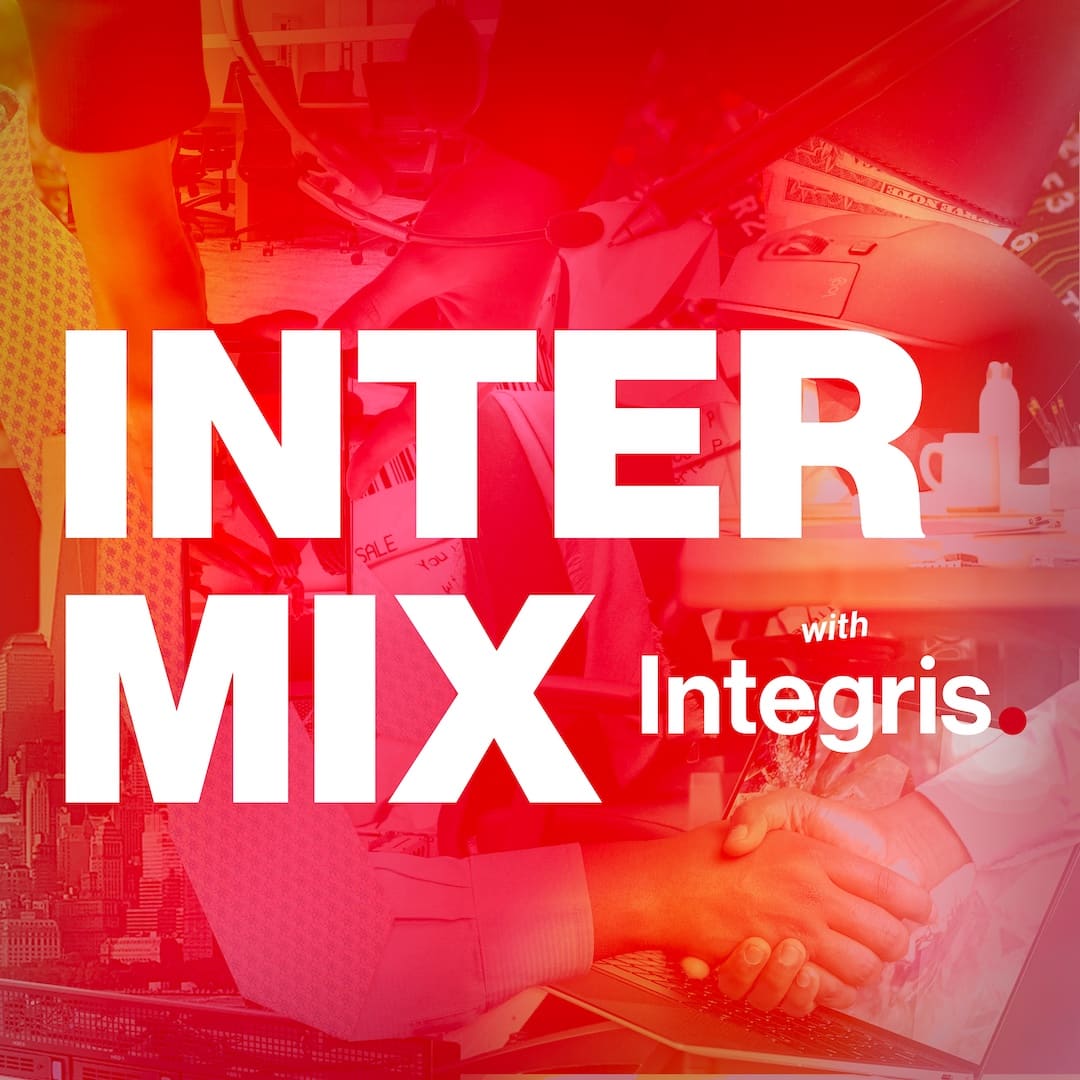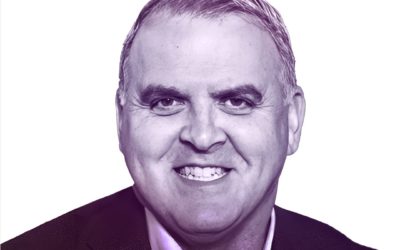Welcome to another episode of The Helpdesk. This episode is part of our Integris employee series, where we delve into the life and career of the people who make Integris what it is. Anthony talks to Clayton Hall, a Systems Engineer on the Integris managed services team in Atlanta. Clayton talks about his initial interest in IT, his experience working for multiple MSPs, and what he sees in Integris’ future.
Check out the transcript below and listen along with the embed, Spotify, Apple Podcasts, or your favorite podcast app.
Transcript
Introduction
Anthony DeGraw: Welcome to the Integris employee series of our podcast. Today, I have the pleasure of welcoming Clayton Hall. He’s a Systems Engineer on our managed services team out of Atlanta, Georgia. Clayton, welcome to the show, man.
Clayton Hall: Hey, thanks very much.
Anthony DeGraw: Awesome. So Clayton, before we get into tech and engineering and all of that. Are you a coffee or a tea drinker?
Clayton Hall: Coffee. I like tea, but yeah, it doesn’t have enough caffeine. I needed it in the morning.
Anthony DeGraw: Do you have a favorite brand or a favorite method that you like to utilize?
Clayton Hall: No, I can’t handle the bitterness, so I need creamer. I just, it’s gotta be, it’s gotta be coffee.
Anthony DeGraw: Sounds good. Alright.
Deciding to become a System Engineer
Anthony DeGraw: With that being said, walk us through what led you to choosing a career path as a Systems Engineer?
Clayton Hall: Well, surprisingly enough, it wasn’t until my last year of community college for my associates that I finally picked a major. I’d had a laptop and a couple of low grade computers before then.
I was just as in the dark as most of most of our clients are, as a basic, you know, “I have a computer and I use it for work.” But I kept running into issues and I got sick of having to call in a consumer level support and deal with their technicians who always showed up late, with the wrong parts, didn’t know what they were doing.
So I started watching them and figuring out where they were messing up and what they were doing wrong. And it’s like, ” why?” In short, I just, I kinda got fed up with consumer grade support and it’s you know what, “I’m going to learn this myself. And I bet I could do better.” So I started looking up and then when they asked me to pick a major, it was, I just kept looking at all the stuff and it’s ” that’s too much math.
That’s too much math. That’s too much physical work. Computers. That sounds fun.” And I just had a knack for it. So I dove a little harder into it.
Anthony DeGraw: Curiosity.
Clayton Hall: Yeah, it’s the ultimate, “if you want it done right” attitude. I just learned it myself.
Initial experiences in the IT world
Anthony DeGraw: That’s awesome. And what was what was your first like, glimpse into professional life in terms of being a Systems Engineer?
Clayton Hall: It was actually more of a, just a regular IT guy in the back room thing. I worked for a rail switching company, fresh out of high school before I got my first gig at an MSP. And I probably learned more in those two years then all of college. Just because, you know, with with some places just an internal IT guy, they run off of a bunch of old five, ten-year machines. And it’s not so much about the technology as much as it is the bare minimum to make business run. So I ended up dealing with a lot of, on the fringe of going out of support and I worked with a lot of no longer in support.
And it was always critical that it work. So, yeah, my first taste was everything’s on fire and nothing works, and I need you to find a way to fix it, but we don’t want to spend a lot of money.
Anthony DeGraw: Yeah. There’s some way some would say there’s no better place to learn than that.
Clayton Hall: Oh yeah. It prepared me that’s for sure.
Mentorship and MSP experiences
Anthony DeGraw: Did you have a mentor throughout, whether it be college or even some of those initial you know, positions that you held that really helped push your level of knowledge, or support you in the journey?
Clayton Hall: Surprisingly enough throughout the little bit of college and my first, my very first gig, I didn’t. I was very much flying blind and I was constantly a mess of “am I learning the right thing? Am I learning stuff that’s going to be useful in the major job market? Or am I just helping keep these guys afloat?”
it wasn’t until I hit my first MSP that I started getting managers who took my growth and advancement as a personal interest. And they started seeing where they felt I could improve. Not in a, “you’re doing it wrong” sense, but more of a, “the potential is there. You’re just missing this, this factor.” And I’ve had a couple of those throughout some of whom are, have not followed me, but coincidentally are now part of the Integris platform as well.
Working for Providyn/Integris
Anthony DeGraw: That’s awesome. So let’s talk about that. What is your experience been working with the team at what was legacy Providyn, now the Integris Atlanta office?
Clayton Hall: Probably the best work experience I’ve had. And I’m not saying that for the podcast, I’ve honestly been looking for ways to express this.
I won’t go into obvious, problematic areas, such as title and name and things like that. But I have worked for unnamed MSPs before, particularly ones that had an M&A. had an acquisition merger, thing like that. It was poorly planned out. It was poorly executed. The entire show was run by people who are definitely good in their field of expertise. Unfortunately, that field of expertise was not technology. And I met a lot of really great engineers there and I had a lot of reason to want to better myself and my skills there.
And unfortunately that did not work out. Moving to Providyn, by pure chance, turned out to be the best move that I could’ve made. It was everything positive that I had learned about MSPs as a perfect place to start, a perfect place, to grow a perfect place to spread out your knowledge in different areas.
Because I mean, you get a job making, whatever you want to make at an individual company that needs an IT person. You are going to learn that system and nothing but that system. And here we touch systems as old as 2003 and as new as tomorrow, stuff that’s not even out yet. And it’s incredible.
And I’m very fortunate that by the time that I got to Providyn, the managers and the leadership were already in place and their mindset and their attitude towards how an MSP should be run jelled so perfectly with mine. And I found through pure happenstance, more people that I was familiar with from previous teams ended up here as well. And we all have the same feeling and we’ve got kind of the cream of the crop of engineers. I feel in Atlanta from the, you know, few teams I’ve had and met and seen, I think we have a pretty astounding one down here in Atlanta, and I couldn’t be prouder of how far we’ve gotten. And I’m hoping that the big expansion, it can only improve that.
Anthony DeGraw: What would you attribute that to Clayton?
Clayton Hall: I think that I would attribute that to the mindset that leadership has. And to clarify, I think that I attribute that to the fact that my manager, Tyler, and our support director, Jean, and our leaders, Hamish, and Matt, they have practicality in their head.
They know that numbers are fine and good and important, but you can’t just ask for the numbers over and over. They take a look. They take the time to look at us as individuals, see where our strengths and weaknesses lie and push us in the direction of our strengths.
If we make a mistake, they don’t wait until the six month interview to nail us for it. They go, “Hey, we saw this just now. How could we fix it.” They don’t make us feel bad if we mess up because it’s expected that with any new technology, you can’t get it right the first time. They acknowledged that we are the driving force of this company. And we face the clients on a daily basis through all of their issues, more so than sales or some strategic solutions or leadership in general.
And they listened to us. They listened to the reports from the field, the boots on the ground, and they actually change or tweak or completely get rid of policies that are harmful to the workforce. Because they know that as long as we can do our jobs functionally, and we know where we stand, we’re happy to do whatever we need to do.
And that mindset of, if the worker is happy and has everything they need to do their job, then doing their job isn’t a chore. It’s something they’re happy to do it. So it’s almost like funding a hobby that just benefits everyone. If that makes any kind of sense.
Anthony DeGraw: Oh, it makes perfect sense. At the end of the day the individuals like yourself then better serve the customers, because you have what you need to do your job.
Clayton Hall: Yeah. I can tell you in my last couple of positions, all I could think about was “how do we get through the day? How do I make sure this is closed? How do we get home?”
Day one since I got here has been, “this is a problem. How do we fix it? This is why has this been a problem for so long?” It’s a puzzle. It’s a puzzle that, that is asking to be solved. Every ticket almost is “how can I solve this puzzle?” Because it brings me a sense of accomplishment to fix clients’ problems.
It brings me a sense of pride when a client is happy with the speed and accuracy with which me, or our entire team, solves their problems. The fact that someone calls us and they don’t feel frustrated enough to launch an entire career into IT like I had to? Makes me feel better. I did I started doing this because I wanted to do it in a way that wouldn’t make other people agitated.
Because we all know the horror stories for Comcast and AT& T and you name it. If you have dreading calling support, cause you know, it’s going to take hours and they’re going to run you through the patronizing stuff that you’ve already done 300 times. And we want to avoid that. We don’t want to be those companies because that’s not how you solve problems.
That’s how you just run formulas and we don’t want to run formulas or metrics mindlessly. We want the problems to be solved so that people want to hire us. I don’t know. It’s just a, it’s a form of practicality that I don’t see too often. And I have great appreciation.
Anthony DeGraw: That’s outstanding.
Typical day in the life of a Systems Engineer
Anthony DeGraw: So with that being said, what does a typical day in the life of a Systems Engineer look like, you know, what problems are you and your team solving for our customers? What do they look like?
Clayton Hall: I can tell you that most of our day to day stuff is actually pretty tame. It’s the stuff you’d expect. This isn’t, you know, “this software is not working,” right? “My password needs to be reset.” You know, the small things take up the bulk.
What I tend to deal with day to day are the things that get past that. And those are things that usually have to do with what we call technical debt. And technical debt is when you have a company that has a system, or a piece, or even just a very important user working or running on a system that cannot handle it or cannot handle it much longer. And we need to find ways to not only measure what the best way to move forward is whether that be replacing or upgrading the equipment or shifting the software, maybe to the cloud, or, you know, there’s a million different ways to do that.
But also how to keep things surviving and online until we can make that change. We’ve had experiences where we deal with things that are so far past end of life, that they just can’t be renewed. The system doesn’t exist anymore. A whole company will run on this system. So what do we do?
We have to find a completely different method to solve the problem that system solves. And sometimes that goes as far as fixing internal processes as well. Will we have, you know, if a process takes 10 to 20 hours for, you know, this major migration to happen and we can, you know, we can shave that down to seven.
That’s amazing. That’s pretty much what I’ve been doing lately is looking through our RMM and looking through a lot of our internal stuff and seeing where we can make these improvements simply because we don’t usually have a lot of time. We have a lot of we have a lot of calls.
We have a lot of projects and when you run that far, when you run that hard for so long, you know, things get missed. Things that need to get updated or trimmed out. And it’s been surprisingly easy because we keep up with it very well. But those changes of what I’ve been focusing on, fixing our RMM and taking a look at some internal processes.
Anthony DeGraw: It seemed like the theme I’m picking up from you is the puzzle solving aspect.
Clayton Hall: I do like a puzzle, heh. I do like a puzzle. Um, yeah.
Looking forward to Integris’ future
Anthony DeGraw: Cool. Final question Clayton, before we part ways here, what are you most excited about with the move to Integris and the current path we are all on?
Clayton Hall: Well, I’m definitely happy for the wealth of knowledge coming in for one, we have how many now?
Like we had five teams and then we added another one that was made up of five other teams. So we’ve got a whole bunch of engineers coming on and a whole bunch of knowledge and a whole bunch of history coming on so that the gaps in knowledge that we have can be filled. And what I’m more excited about is being able to fill the gaps that I can in other teams, if I can.
That’s what I’m hoping is that I can bring any amount of skill that others perceive I have, into use for a larger group of people. I like being helpful. I like being useful. And if I’m any good at it, I want to be able to apply it to as many people as possible. So if that means they got to send me to Denver for a few months, I’m okay with that.
I think we were joking earlier, I said, ” we need to find someone in the partnership that opens up in Hawaii or something like that.” But ultimately, it’s the resource expansion. I like having more engineers who I can draw knowledge on. I like being able to share what I’ve learned with others.
And it just makes a bigger, stronger force that allows us to basically, do what we want, because what we want is to solve these problems and help the clients. It’s really the only reason to stay an engineer for so long, to make it a life career is if you like solving these problems and learning.
And I think that I have a lot of learning I still need to do. And in any other MSP, you know, you’ll hit a wall. You’ll hit a wall. I’ve learned everything I can from these guys, but I don’t really wanna leave, ‘ cause I like it here. I really like it here. I can’t stress that enough. I never thought I would have a job that was this rewarding.
And the fact that we’re about to what’s the double triple, quadruple, what is that in the tens and fifteens, we’re about to exponentially expand our pools of knowledge and resource and ability. And it’s, it’s becoming a company slash platform. You really can devote a lifetime career to, I can see working here 10, 20, 30 years down the road. And that’s incredibly exciting for me.
Anthony DeGraw: That mindset of everything that you just mentioned, I think is the ultimate mindset that if everybody has, will lead us to do great things in every position in this company.
So, ladies and gentlemen, that is Clayton Hall, Systems Engineer on our managed services team out of our Atlanta Georgia office.
Clayton, thank you so much for coming on the podcast today. I appreciate it, man.
Clayton Hall: Thank you for reaching out. I was excited to hear from you.
Anthony DeGraw: Awesome, man. Clayton. Thank you so much, man. See ya.
Clayton Hall: You’re very welcome. Bye.



